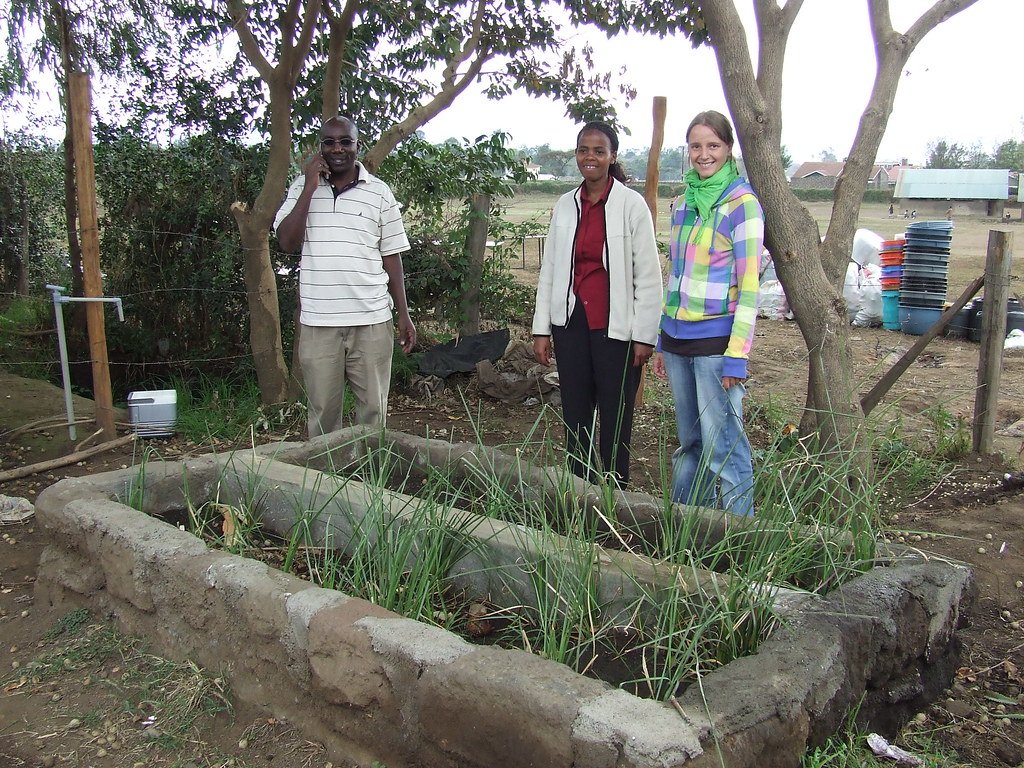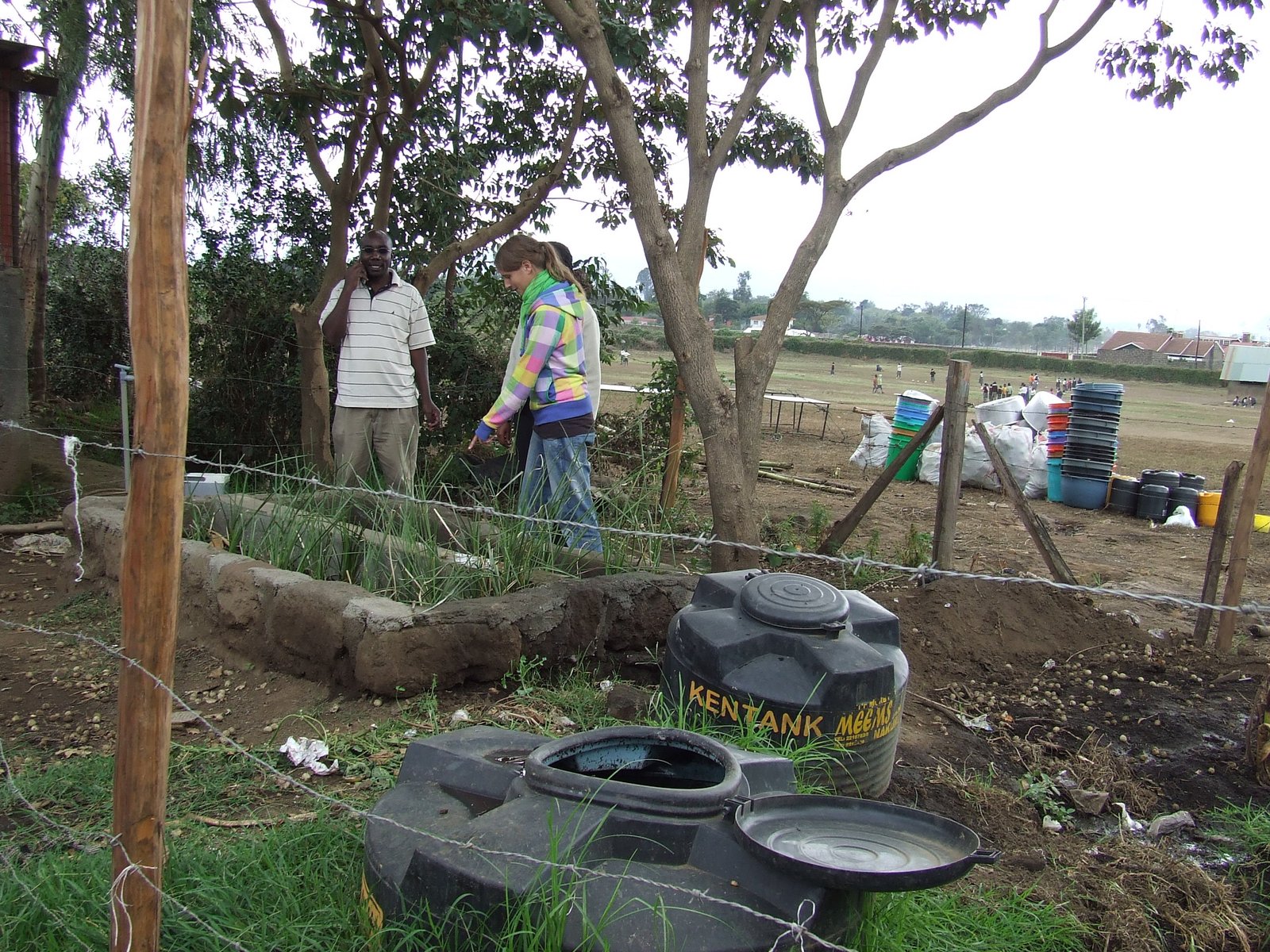Living off-grid can be both exhilarating and liberating, allowing you to disconnect from the frenzied pace of modern life and embrace a more self-sufficient existence. In this autonomous realm, every resource counts, including water. With limited access to traditional plumbing systems, setting up a greywater system becomes paramount for sustainable off-grid living. Harnessing the marvels of nature, you can discover the art of recycling and reusing wastewater to create a harmonious and eco-friendly habitat. So, if you are ready to unlock the secrets of a greener lifestyle, join us as we delve into the intricacies of setting up a greywater system for off-grid living.
Table of Contents
- Understanding Greywater and its Potential for Off-Grid Living
- Design Considerations for an Efficient Greywater System
- Choosing the Right Components for Your Off-Grid Greywater System
- Installation Tips and Best Practices for a Successful Greywater System
- Maintenance and Long-Term Care for Off-Grid Greywater Systems
- Q&A
- Final Thoughts

Understanding Greywater and its Potential for Off-Grid Living
Greywater is a valuable resource that often goes unnoticed in the realm of off-grid living. It refers to wastewater generated from sources such as sinks, showers, and laundry machines, excluding toilet water (known as blackwater). Rather than being discarded as sewage, greywater can be recycled and repurposed for a variety of useful purposes.
Benefits of Greywater Recycling:
- Water Conservation: By reusing greywater, off-grid dwellers can significantly reduce their water consumption and reliance on limited water supplies, ensuring sustainable living.
- Garden Irrigation: Greywater, when appropriately treated, can provide a reliable source of moisture for nurturing plants and cultivating thriving gardens. This not only promotes self-sufficiency but also plays a crucial role in enhancing biodiversity.
- Reduced Environmental Impact: Recycling greywater reduces the burden on septic systems and decreases the amount of wastewater being released into the environment, minimizing pollution and protecting natural ecosystems.
Understanding the potential of greywater for off-grid living enables individuals and communities to take a proactive step towards a more sustainable future. By harnessing this often overlooked resource, off-grid dwellers can embrace a lifestyle that combines eco-consciousness with self-sufficiency.

Design Considerations for an Efficient Greywater System
Designing an efficient greywater system requires careful consideration of various factors to ensure optimal performance. Here are some essential design considerations to keep in mind:
1. Water Source Selection: When choosing the water sources for your greywater system, prioritize the ones that produce high-quality water suitable for reuse. Avoid sources that may contain contaminants or excessive levels of chemicals, as these can negatively impact both the system’s functionality and environmental sustainability.
2. Treatment and Filtration: Implementing an effective treatment and filtration system is crucial to maintain the quality of the greywater. Consider incorporating components such as sediment filters, activated carbon filters, and disinfection mechanisms to remove impurities and minimize the risk of diseases or odors.
3. Gravity and Plumbing: Proper plumbing design can significantly enhance system efficiency. Utilize gravity wherever possible, as it requires no additional energy for the water to flow. Strategic placement of pipes, drains, and diversion valves can help establish a reliable and easy-to-maintain system.
4. Irrigation Techniques: Efficient irrigation is essential for utilizing greywater effectively. Choose appropriate irrigation techniques tailored to the landscape and plants in your vicinity. Options such as drip irrigation, subsurface irrigation, or specific spray nozzles can reduce water wastage, save energy, and promote plant health.
5. Storage and Distribution: Adequate storage and distribution infrastructure play a vital role in maintaining consistent water supply. Select storage tanks or reservoirs based on the estimated water usage and consider factors like accessibility, maintenance requirements, and environmental impact. Properly designed distribution networks will ensure that the treated greywater reaches the intended end-use areas efficiently.
Remember, a well-thought-out design is essential to maximize the efficiency of your greywater system, minimize environmental impact, and contribute to sustainable water management practices.
Choosing the Right Components for Your Off-Grid Greywater System
When it comes to creating your off-grid greywater system, it’s important to carefully choose the right components. Whether you’re looking to reduce water waste, maximize eco-friendly practices, or simply be self-sufficient, finding the perfect combination of elements is key. Here are some factors to consider:
- Storage capacity: Determine how much greywater your system needs to handle and choose storage tanks or barrels accordingly. Ensure they are sturdy, durable, and eco-friendly.
- Filtration system: Implementing an effective filtration system is crucial to ensure that greywater is adequately treated before reuse. Look for reliable filters that are easy to clean and maintain.
- Diversion device: A diversion device will direct greywater away from areas you don’t want it, such as drinking water sources or places prone to flooding. Install a reliable and easy-to-use diverter to control the flow of greywater.
- Irrigation system: Depending on your needs, you might opt for drip irrigation, subsurface irrigation, or sprinklers. Choose an irrigation system that suits your landscape and water distribution requirements.
- Pumps: If your greywater system requires pumping, select an energy-efficient pump that suits the amount of water and pressure needed. Look for pumps designed for off-grid applications to ensure compatibility.
Remember, proper research and analysis are essential in . Each component should work harmoniously to create an efficient and sustainable solution for managing your greywater. With the right selection, you can enjoy the benefits of reducing water waste and being environmentally friendly.

Installation Tips and Best Practices for a Successful Greywater System
When it comes to installing a greywater system, there are several tips and best practices that can ensure a successful and efficient setup. Follow these guidelines to make the most of your greywater system:
1. Location Matters:
Choose the optimal location for your greywater system, keeping in mind factors such as accessibility, proximity to plumbing fixtures, and ease of maintenance. Remember to comply with local regulations and codes for greywater usage and disposal.
2. Proper Filter Selection:
Selecting the right filter for your greywater system is essential for its proper functioning. Look for a filter that suits your specific needs, whether it’s removing particles, contaminants, or both. Regularly clean and maintain the filter to prevent clogging and ensure optimal water flow.
3. Plumbing Considerations:
Plan your plumbing layout carefully, considering the flow rates and pipe sizes of your greywater system. Properly size the pipes to avoid blockages or reduced water pressure. Ensure airtight connections and use appropriate fittings to prevent leaks. It’s also crucial to install a backflow prevention device to avoid cross-contamination between greywater and potable water sources.
4. Efficient Irrigation Methods:
To make the most of your greywater for irrigation purposes, consider using drip irrigation or low-flow sprinklers. These methods help minimize water waste and ensure efficient distribution to your plants or garden. Ensure that the greywater is distributed evenly and doesn’t accumulate in one area to avoid oversaturation or potential damage to vegetation.
5. Regular Maintenance:
Periodic maintenance is crucial to keep your greywater system running smoothly. It includes routine inspections, cleaning of filters, flushing the system to remove any trapped debris, and checking for leaks or malfunctions. Regularly monitor the system’s performance to ensure it operates efficiently and troubleshoot any issues promptly.
Maintenance and Long-Term Care for Off-Grid Greywater Systems
Keeping your off-grid greywater system in pristine condition is essential for its long-term effectiveness and efficiency. Regular maintenance ensures that the system continues to function optimally, promoting a sustainable and environmentally-friendly way of managing wastewater. Here are a few important steps to follow for the upkeep of your greywater system:
- Inspect regularly: Regularly check all components of your greywater system, including the filtration system, pipes, pumps, and valves. Look out for any signs of wear and tear, leaks, or clogs, as these can impede the flow and treatment of greywater.
- Clean filters: Properly maintain and clean the filters in your greywater system as instructed by the manufacturer. Clogged filters can hinder water filtration, leading to blockages and reduced system performance.
- Monitor water usage: Keep track of your household’s water consumption to ensure that your greywater system can handle the volume effectively. Implement water conservation measures, such as installing low-flow fixtures and encouraging responsible water usage habits.
- Prevent contamination: Avoid introducing harmful chemicals, such as bleach or antibacterial soaps, into your greywater system. Opt for environmentally-friendly alternatives and biodegradable cleaning products. Additionally, regularly maintain and inspect the septic tank or leach field connected to your greywater system to prevent contamination of groundwater sources.
- Winter protection: If you live in an area with freezing temperatures, take appropriate measures to protect your greywater system during winter. Insulating pipes, adding heat cables, and draining the system when not in use during winter months help prevent damage caused by freezing.
- Professional servicing: Consider periodic professional servicing of your greywater system to ensure its continued efficiency and longevity. A trained technician can identify potential issues and provide expert guidance on maintenance.
Q&A
What is a greywater system and why is it important for off-grid living?
A greywater system is a method of recycling water from non-toilet plumbing fixtures such as sinks, showers, and laundry machines. It is important for off-grid living as it reduces water waste and allows for sustainable water management.
How do I choose the right greywater system for my off-grid home?
Choose a greywater system that aligns with the water needs of your household and the available space. Consider factors such as the type of filtration, storage capacity, and whether you want to use the recycled water for irrigation or other non-potable purposes.
Can I set up a greywater system on my own or should I hire a professional?
Setting up a greywater system can be done by individuals with a basic understanding of plumbing and wastewater regulation. However, due to the potential environmental and health risks involved, it is recommended to consult with a professional or experienced plumber to ensure the system is installed correctly and safely.
What are some basic steps involved in installing a greywater system?
The installation process generally involves redirecting plumbing fixtures to a filtration and storage system, ensuring proper ventilation, and creating an appropriate drainage system for the recycled water. However, it is advisable to refer to specific guidelines and local regulations to ensure compliance and best practices.
Are there any legal restrictions or regulations regarding greywater systems?
Yes, there may be legal restrictions or regulations imposed by local authorities that govern the use and installation of greywater systems. It is crucial to research and comply with these regulations to avoid potential fines or health hazards associated with improper greywater management.
What are the benefits of using a greywater system for off-grid living?
Using a greywater system enables off-grid households to reduce their water dependency, conserve vital resources, and decrease the burden on their water supply. It also helps to lower overall water bills and promotes sustainable practices in line with eco-friendly living.
How can I maintain and monitor the performance of my greywater system?
Regular maintenance such as cleaning filters, inspecting pipes for blockages, and monitoring water quality is necessary to optimize the system’s performance. It is advisable to keep track of water usage, especially during dry seasons, to ensure the system can handle the demands effectively.
Are there any safety precautions I should consider when using a greywater system?
When using a greywater system, it is essential to follow basic safety precautions like wearing gloves and protective clothing when handling or maintaining the system. Additionally, avoid using greywater for watering edible plants or directly contacting the skin to minimize health risks.
Final Thoughts
As we bring this journey towards sustainable off-grid living to an end, we hope you have found inspiration in exploring the possibilities of setting up a greywater system. By harnessing the power of the humble water droplet, you can streamline your consumption, reduce your ecological footprint, and lend nature a helping hand.
Remember, as true stewards of the Earth, our actions extend far beyond the boundaries of our properties. By implementing a greywater system, you become an agent of change, a catalyst for a more harmonious coexistence with our planet.
Now armed with the knowledge of how to set up your very own greywater system, it’s time to put theory into practice. Draw up plans, gather your equipment, and embark on this transformative endeavor, mindful of the gift you’re offering to the environment and future generations.
Allow yourself to be captivated by the higher purpose of going off-grid, basking in the tranquility of knowing that every drop of water is being put to the best use possible. Each bubble of foamy dishwater, each sip of revitalizing shower runoff, becomes a testament to your commitment towards a sustainable lifestyle.
As you navigate the complexities of this exciting venture, don’t forget the sense of community that prevails among off-grid enthusiasts. Reach out to like-minded individuals, join online forums, and engage in conversations with fellow trailblazers. Together, we can unravel the mysteries of off-grid living, sharing stories, tips, and invaluable knowledge.
And so, we bid you farewell, with the hope that this article has ignited a newfound passion for off-grid living and the ever-evolving world of sustainable practices. May your greywater system become the starting point of a journey towards a more self-reliant and eco-conscious way of life.
So go forth, dear reader, and embark on this extraordinary adventure. May your footsteps leave nothing but a greener path for others to follow. Set up your greywater system and with each drop that cascades from your faucet, whisper softly to the Earth: “I choose a different way.
As an affiliate, my content may feature links to products I personally use and recommend. By taking action, like subscribing or making a purchase, you’ll be supporting my work and fueling my taco cravings at the same time. Win-win, right?
Want to read more? Check out our Affiliate Disclosure page.